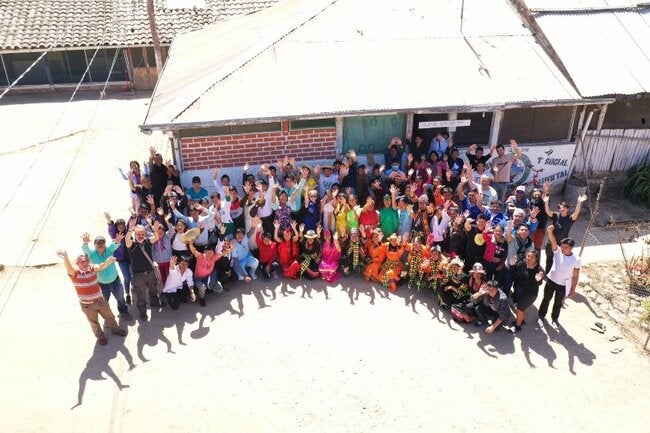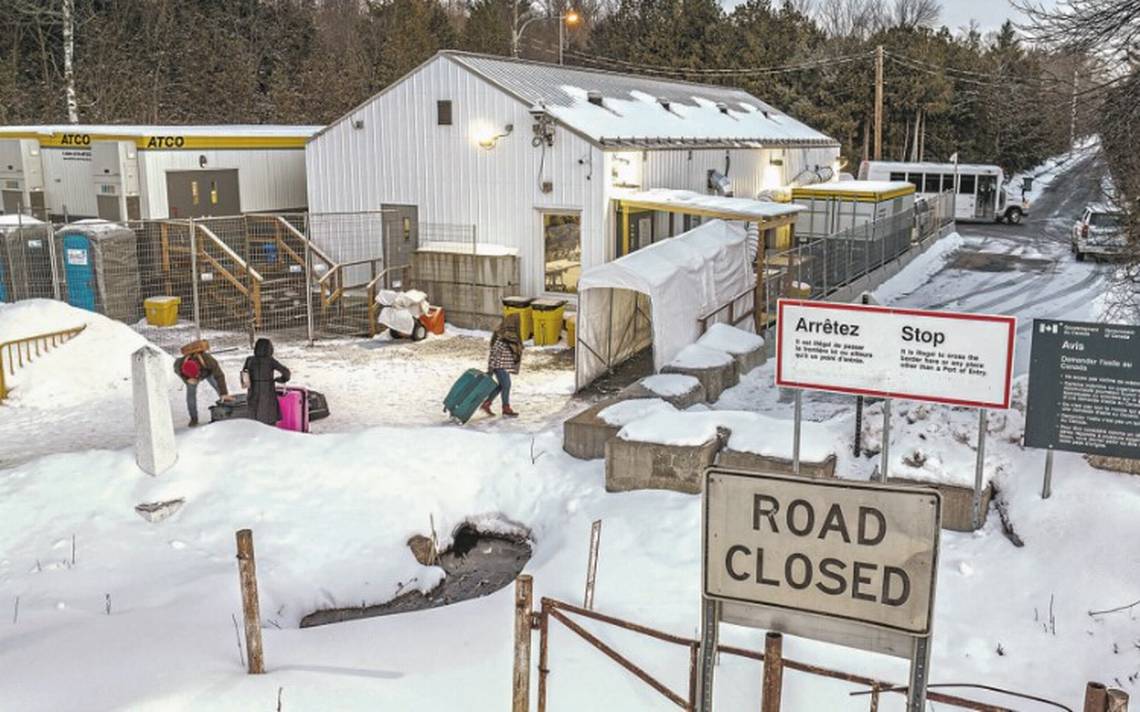Santa Cruz, Bolivia, September 4, 2023 (PAHO) – The Improving the Health of Women and Adolescents in Vulnerable Settings project, implemented in Bolivia between the Pan American Health Organization/World Health Organization (PAHO/WHO) and Global Affairs Canada, builds its work on national, administrative, municipal and territorial alliances. Locally, to contribute to reducing maternal morbidity and mortality.
The goal of the project is to increase access to and coverage of sexual, reproductive, and maternal health services, in order to provide a large-scale, comprehensive primary care response for women and adolescents living at risk in six countries, including Bolivia. The project was developed in Bolivia in La Paz, Cochabamba, Oruro and Santa Cruz.
With the visit to Bolivia of the Global Affairs Canada-funded Regional Project and Project Management Advisor from the office of PAHO Deputy Director Heidi Ullmann, the importance of continuing to work in coordination with the Ministry of Health and Sports is highlighted. This is confirmed, with sub-national alliances – such as provinces and municipalities – and with local and community partners – such as midwives or the School of Public Health in Chaku Tikof Kato – to advance women’s health.
“We have collaborators at the international level such as the Canadians who contribute a lot with us so that we can reach the local communities, but mayors are also important partners in municipal work, and we also have NGOs and religious organizations working with us and cooperating so that we can reach the community directly,” he explained. The International Advisor on Family Affairs, Health Promotion and Healthy Lives Matter states that it is very important to have cooperation at all levels, both across sectors and sectors, to achieve a reduction in maternal morbidity and mortality and community members’ access to health care.PAHO/WHO In Bolivia, Eric Rosselin.
Partners at subnational levels
In this sense, Evelyn Diaz, physician and director of the Health Services and Programs Unit of the District Health Services Department (SEDES) in Santa Cruz, underscores the importance of the alliance with the PAHO/Canada project: “Based on the indicators of morbidity and mortality among adolescents in the department, SEDES, in close coordination with the Pan American Health Organization, has developed an action plan with the aim of being able to strengthen the capacities of health workers, through training and upskilling of their competencies, as well as the establishment of competency development centres, to improve care in health services targeting mothers and adolescents in the department.
“We intend to directly impact the care of users, pregnant women, adolescents and newborns in order to provide timely care with warmth and quality so that we can influence the indicators of morbidity and mortality,” Diaz said.
On the other hand, the project works together with the Association of Councilors and Mayors of Bolivia (ACOBOL), and in recent months has held several meetings to advocate for the health of women and adolescents, within the framework of the presence of healthy municipalities. .
building abilities
On the other hand, Rosselin explained that the project “has a strategy to enhance the capabilities of human talent, in two areas: in specialized human resources for health networks and in non-specialized community human resources.”
In this context, it has developed several measures aimed at achieving this goal over the past few months. For example, the National Training Course for Facilitators in Obstetric Emergencies was implemented in collaboration with the Ministry of Health and Sports, with international experts from the Latin American Center for Perinatology (CLAP), in which representatives of the nine departments from the three levels of care participated and we have already started creating the versions. Similar to many second-level hospitals.
In the following days, with the same concept, five workshops will be planned with CLAP specialists on antenatal care, maternal mortality committees, a neonatal workshop, and training of medical technical teams for intentional research and reclassification of maternal deaths (BIRMM) with PAHO experts from Headquartered in Washington, D.C. and CLAP.
Impact on communities
In the area of strengthening non-specialized community human resources, the project trained indigenous women as community promoters, leaders and delegates for indigenous peoples and territories in the lowlands of Bolivia affiliated with the National Confederation of Indigenous Women of Bolivia (CNAMIB), within the framework of the Knowledge Dialogue methodology developed by PAHO/ Global health.
It has also generated a process of continuous improvement of the capabilities of midwives, both in the highlands and lowlands of the country. The midwives participated in workshops where they held exchange meetings, strengthened their capacities in maternal health and intercultural dialogue with the aim of reducing severe maternal mortality and morbidity (EMM) in communities, in addition to receiving perinatal risk screening kits. Pan American Health Organization (PAHO), through a project funded by Global Affairs Canada.
After visiting the country, Heidi Ullmann was very impressed with the work carried out with local actors who have direct coordination with rural communities and indigenous areas, in order to positively impact maternal and adolescent health.
“Midwives play an essential role in providing health services to women in communities, especially in indigenous communities. They perform this role with a lot of solidarity, a lot of affection, a lot of compassion. It is important that there is recognition by health systems so that there is a bridge Between what you provide in communities and the services that the health system may ultimately require, to ensure there is no maternal morbidity and mortality,” said Heidi Ullman.
For her part, the Head of Cooperation at the Canadian Embassy said: “For Canada, it is interesting to see how traditional or multicultural medicine blends with traditional medicine. Because we have a truth and reconciliation plan with indigenous people and we want to learn from them and their knowledge and be able to express and integrate each other in everything we do. This diverse and multicultural interest is fundamental to being able to move forward in this process of reconciliation and see that yes, beyond what is Western, we can learn from indigenous peoples.
Lead Partner: Tikoff Kato School of Public Health
Finally, the PAHO/Canada project works with strategic partners in Chaco Santa Cruz such as the Tikof Kato School of Public Health, which has been training indigenous youth for more than forty years.
Young people who train at the school are elected by the assemblies or councils of their peoples and/or countries of origin. The appointment is a letter of commitment to return to the territory to provide health care. They are trained in three positions to respond to (indigenous) district needs: nursing technicians, nutrition, and environmental health (based on determinants of health).
“Although the school originated in Guarani territory, members of practically all indigenous communities in Bolivia, Argentina and Paraguay attend the school. We have had the opportunity to form up to 16 indigenous nations, with one committing to return to society after they have been trained To be able to freely give back what they have received. The idea is to train leaders. We know that health cannot be achieved by one person, it is achieved only by the organization. (Father) Tarcisio always reminds us that in the Guaraní language they say opariti utirami, all this as if we were one person. “The work of the young people who leave here is an organizational work,” says the school’s academic director, Francesco Cosmi. “If there is no organization, there is no health.”
PAHO has a two-decade history of collaboration with the school. Currently, in the context of the PAHO/Canada project, the students’ capacities are being strengthened so that, upon completion of the training, they will become key actors in the health of women and adolescent girls in vulnerable situations.
For her part, after learning about the experience, Heidi Ullmann noted: “It seems to me that the work that the Tikof Kato School is doing here in Chaco is very fundamental, with supportive young people who want to work in the field of public health and support the improvement of the health of women and adolescents. “They are certainly a strategic partner in trying to improve public health in their communities.”
“In the Guarani world, Tekove Katu means complete life, complete physical, mental and spiritual well-being. If we have no land there will be no health, if we have no water there will be no health, we will have no education, work or justice. If we do not have There is peace with your neighbour, we will not have health. Therefore, in this broad concept of health, young people leaving school will serve as a bridge with society to strive for a single, multicultural health system for all,” says Kosmi.
Therefore, the “Improving the Health of Women and Adolescent Girls in Vulnerable Situations” project, implemented by PAHO/WHO in collaboration with Global Affairs Canada, will train young people in public health from TIKOV KATU as key actors in promoting women’s health. Preventing maternal morbidity and mortality and teenage pregnancies, especially in indigenous and/or nations communities.








:quality(85)/cloudfront-us-east-1.images.arcpublishing.com/infobae/BPY5HJVZYJEXVML4Q4Z2AFWANU.jpg)


